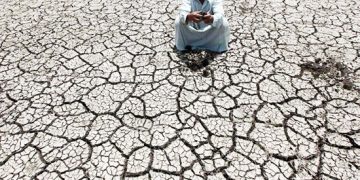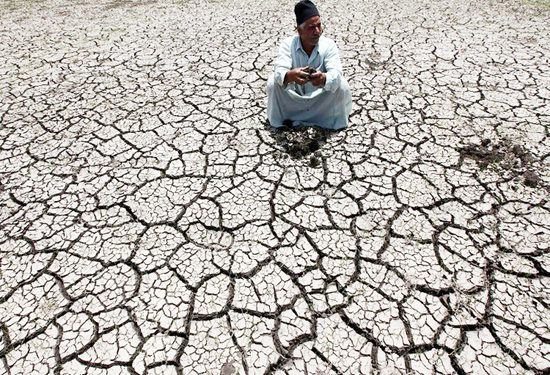China Daily
As the proverb goes, it never rains but it pours. The tragic irony of the crippling drought conditions that have hit countries across the MENA region from Jordan to Morocco, is that these conditions increase the risk of flooding when the rains do eventually arrive. These extremes of too much or too little water are bringing misery to communities and businesses, and they occur often in close succession, which means the time to recover is increasingly limited.
Climate change is exponentially altering the water cycle beyond normal patterns, and the ripple effects are impacting everything from groundwater, soil quality and erosion to agriculture, food security and economic growth. Furthermore, the cumulative impact hits those already most vulnerable hardest.
Yet droughts do not have to define the future of the Middle East and North Africa. With the global spotlight falling on the region’s climate plight this year, ministers, leaders, scientists and practitioners have the chance to leverage greater unity and collaboration to build stronger drought defences for the entire region. With the first MENA Climate Week taking place in the lead up to this year’s COP27 climate summit in Egypt, international attention will undoubtedly shift to the increasing, and increasingly visible, impact climate change is having on this part of the world.
These events offer up an unparalleled opportunity to build on the progress made by national climate strategies (NDCs) and long-term research projects such as the USAID-funded MENAdrought initiative, and secure the international support needed to build a more climate-resilient future for water – and the hundreds of millions of people who rely on it – throughout the region.
To achieve this, governments, agencies and water users will need to further develop and refine strategies to manage the “new normal” water resource conditions that result from climate change and other stressors on supplies and uses. Water scarcity is a fundamental issue that affects all countries in the MENA region, which accounts for only 1.4 per cent of the world’s total renewable water supplies, meaning careful use of these limited resources is key.
Maximising efficiency
Improving water management relies on accurately measuring and quantifying existing water resources. Only once quantities, sources and limitations are fully known and understood can authorities then maximise efficiency from their water resources, from storing water and recharging aquifers to reusing treated wastewater.
Second, building a more resilient, water secure future relies on developing the systems that can better anticipate and prepare for the increasingly complex risks brought about by climate change.
For instance, drought alone is itself well understood by both researchers and policymakers in the region, but cascading risks are bringing new and unpredictable water scenarios, particularly as temperatures rise and the water cycle accelerates. It is no longer possible to rely on historic patterns of drought and rains to anticipate water levels and needs. This is why the development and implementation of map-based monitoring and early warning systems is the first pillar of the MENAdrought initiative, which has already supported the governments of Jordan, Lebanon and Morocco to adopt a drought index that can show where stressed conditions exist and trigger actions to help.
In turn, these tools can be used to forecast the impacts of drought on critical sectors such as agriculture by monitoring soil moisture levels and evaporation, giving farmers, industry and policymakers a head start in adapting to extreme conditions.
Finally, to accelerate these efforts, policymakers throughout the region must continue to engage with partners around the world to channel climate finance most effectively towards adapting to climate change through reducing water demand or increasing supplies.
This includes maximising partnerships with scientific organisations, like the International Water Management Institute, and technical providers to leverage their expertise and innovation in addressing the increasing complexity of climate and water risks.
Ultimately, the MENA region must be ready with solid adaptation strategies and measures that can be funded by both private and public investors, including developed countries, which promised $100 billion in climate finance for adaptation in low-income countries.
The recent IPCC report has put the world on notice, warning that action is needed now as there is no time to lose in adapting to the inevitable impacts of climate change, with successful adaptation becoming harder for every fraction of a degree of warming.
So, while MENA Climate Week may last only four days, adaptation actions need to accelerate fast to continue the region’s development, and the success of both comes down to smarter water management. Water is life and bringing today’s technologies and policy solutions, together with traditional understanding and management of this precious resource will be critical in the decades to come as the impacts of climate change bite ever harder.





